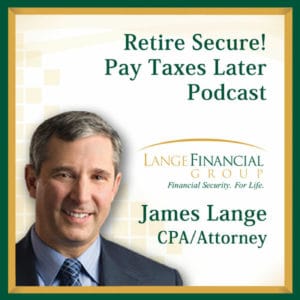To listen to this snippet, click here
Jim Lange: Roger Ibbotson is perhaps the most famous expert on asset allocation. One of his famous quotes is, “Asset allocation is the strategy advocated by modern portfolio theory from maximizing gains while minimizing risks in your investment portfolio.” Roger is a Yale University professor, chairman and founder of Ibbotson and Associates that was purchased by Morning Star. One of Roger’s less famous quotes is: “Retire Secure!, a very practical investment guide on how to defer taxes and efficiently plan for your retirement and your estate.”
David Bear: A nice blurb for your book!
Jim Lange: Are you more of a fan of active or passive, or do you like both, depending on the situation?
Roger Ibbotson: Well, you know, this gets to the core question of “Are markets efficient?” That is, can you beat the market? And there is, of course, some evidence that people can beat the market. Academics are always fighting about, well, how efficient are markets? And, of course, if you believe markets are really efficient, the correct way is to be passive in your investments. If you believe markets are inefficient, that there’s all kinds of mispricing in the market, then it’s actually not clear what you should do. If markets are inefficient, that means that there would be a lot of distortions in the markets.
But then you have to ask yourself: Am I the one who can take advantage of these distortions, or am I the one who’s going to get ripped off by these distortions? And you can think of it like a giant poker game here. If markets are inefficient, and they are to some extent, then some people are going to win and some people are going to lose. Now, do you want to get into that giant poker game? The passive investor avoids the poker game and basically rides up and down with the market. The poker game is all about Alpha. It’s all about beating the market or getting beat by the market. And so, the active investor is the one who joins the poker game.
Now what you have to ask yourself is: Even if you believe that there are enough distortions that there’s a lot of money to be made in that poker game, poker, by its nature, is a zero-sum game. That is, that whoever wins money takes it out of the hide of those who lose money. The markets go up and down, and we all ride the waves of whatever happens in the market. But if you actively invest, you’re not going to actually participate directly in the ups and downs of the market because you’re going to make your very specific bets, and you’ll either do better or worse.
Jim Lange: I sometimes think about if you’re at a poker game, and you can’t spot the sucker, it’s probably you.
Roger Ibbotson: That’s a very good way of putting it because that’s the danger for most of us, as individual investors. Most individual investors are not the ones to take advantage of the distortions.

